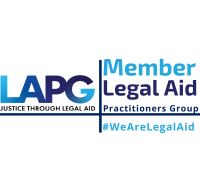COMPLAINTS POLICY AND PROCEDURE
A complaint is any communication the client or an instructed professional has with the Firm in which they express their dissatisfaction with service, quality, invoicing and pricing. We take all expressions of dissatisfaction very seriously.
The Director who has overall responsible for dealing with complaints is Dawn Wilson. This page explains our procedures for handling complaints to ensure that each complaint is dealt with swiftly in an attempt to reach an amicable and satisfactory solution.
Reporting & Investigation Responsibilities
Informal verbal complaints should be addressed to your lawyer in the first instance. If you are not satisfied with their proposals, then the matter should be taken up with the Director responsible for their work / or direct to the Complaints Officer. The name of that Complaints Officer will have been given in your initial client care letter, but if you are unable to locate this, you can ask your lawyer or a member of our support staff. If the matter cannot be resolved informally with your lawyer, it would assist investigations if you were to fully detail your concerns in writing so there is less room for misunderstanding your concerns and requirements.
Response Times
Written complaints will be acknowledged in within 7 days of receipt whereby the name of the person responsible for handling the complaint will be confirmed. A full reply will be sent as soon as the matter has been investigated and our proposals for dealing with your concerns have been agreed upon. In any case, we will always endeavour to provide a full response within 21 days. If that is not possible, an interim response will be given explaining why it is not possible to meet this deadline, when we expect our investigations to be completed and a response finalised.
At this stage, if you are still not satisfied, you should contact us again and we will arrange for another Director or someone unconnected with the matter at the firm to review the decision. We will write to you within 14 days of receiving your request for a review, confirming our final position on your complaint and explaining our reasons.
Unresolved Issues
If your complaint has not been resolved to your satisfaction within eight weeks of making the complaint, you may be able to complain to the Legal Ombudsman.
Full details of the kinds of complaints which the Ombudsman will accept can be found on their website at www.legalombudsman.org.uk and their address and contact details are: PO Box 6167, Slough, SL1 0EH. Telephone: 0300 555 0333 or email: enquiries@legalombudsman.org.uk.
Call 0300 555 0333 between 8.30am to 5.30pm. Calls to 03 numbers will cost no more than calls to national geographic numbers (starting 01 or 02) from both mobiles and landlines. Calls are recorded and may be used for training and monitoring purposes. For minicom call 0300 555 1777.
The Legal Ombudsman expects complaints to be made to them within one year of the date of the act or omission about which you are concerned, or within one year of you realising there was a concern. You must also refer your concerns to the Legal Ombudsman within 6 months of our final response to you.
The Ombudsman will not accept complaints where the act/omission/date of awareness was before 6 October 2010. You should also note that the Ombudsman may not consider a complaint about a bill if you have applied to the court for it to be assessed.
We will also have regard to the latest EU Directive on Consumer ADR (October 2015) when the first-tier complaints’ handling has concluded.
What to do if you are unhappy with our behaviour
The Solicitors Regulation Authority can help if you are concerned about our behaviour. This could be for things like dishonesty, taking or losing your money or treating you unfairly because of your age, a disability or other characteristic.
Visit their website to see how you can raise your concerns with the Solicitors Regulation Authority.
Management
All complaints (written or verbal) are recorded and logged centrally to enable us to detect recurring problems and trends. As necessary, we will implement corrective action in response to individual complaints and improvement measures to prevent adverse trends and correct recurring problems. In this manner, we aim to constantly improve the service we provide.


